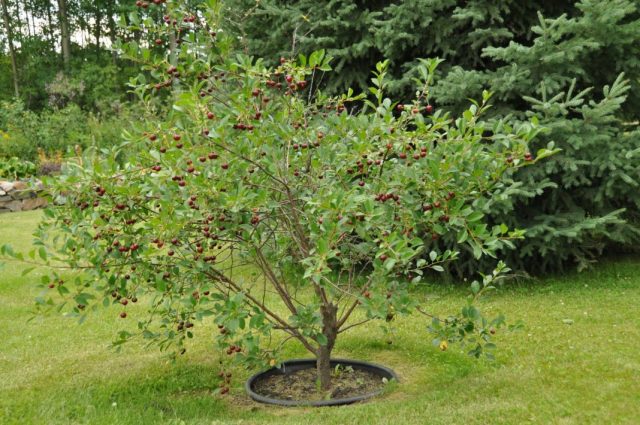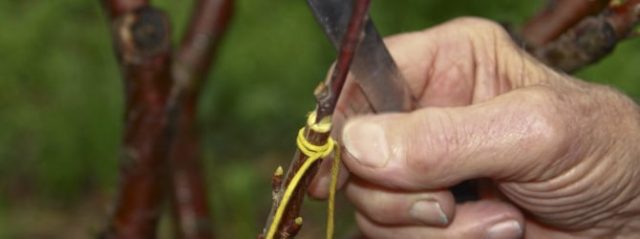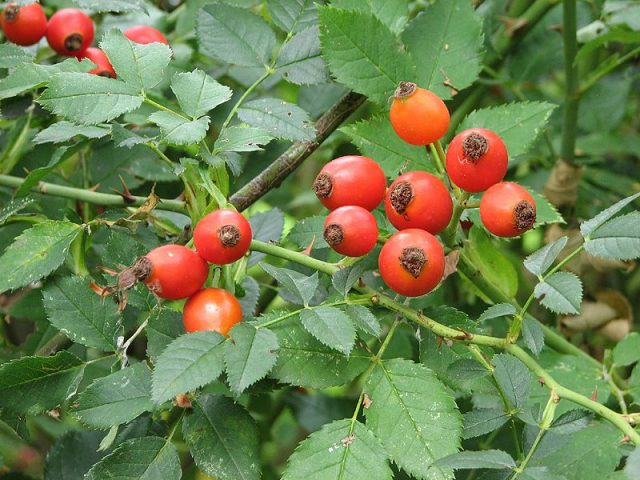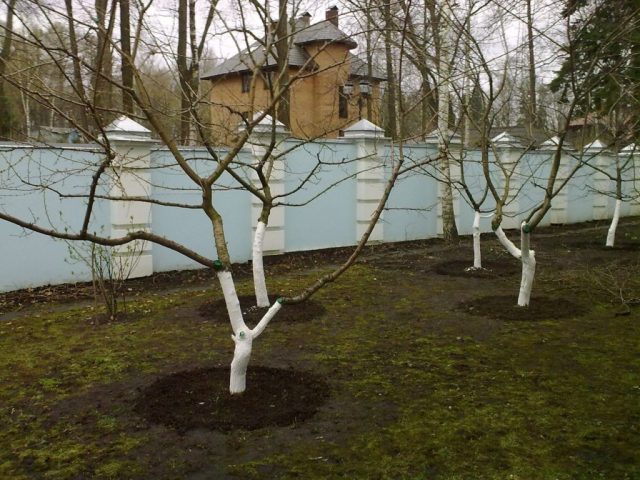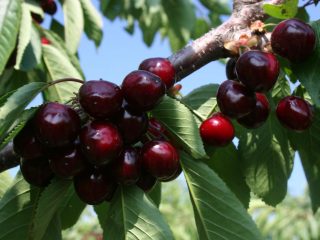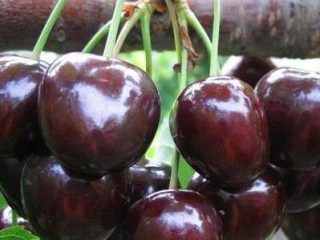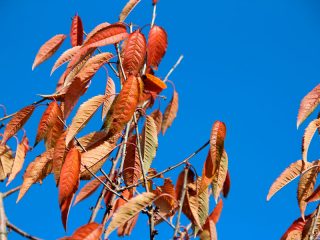Content
- 1 Sweet cherry for the Urals and Siberia
- 2 Does sweet cherry grow in the Urals
- 3 The best varieties of cherries for the Urals
- 4 Does sweet cherry grow in Siberia
- 5 Winter-hardy cherry varieties for Siberia
- 6 Sweet cherry in Siberia: planting and care
- 7 Classification of cherry varieties for the Urals and Siberia
- 8 Cultivation of sweet cherries in Siberia and the Urals in a creeping form
- 9 Conclusion
Sweet cherry for Siberia and the Urals is not an exotic plant for a long time. Breeders have worked hard to adapt this southern crop to the harsh climate of the local area. Their painstaking work was crowned with success, and at present there are quite a few varieties of sweet cherries suitable for cultivation in the territories of the Urals and Siberia.
Sweet cherry for the Urals and Siberia
The main danger for cherries in these regions is severe winters. Often at this time the air temperature drops to -40 ..- 45 ° C, which is detrimental to such a southern culture as sweet cherry. Only a few varieties have suitable winter hardiness.
Return frosts are also of great danger to cherries. It is these two parameters that you need to pay attention to when choosing a variety for planting: winter hardiness and resistance of flower buds to recurrent frosts.
Does sweet cherry grow in the Urals
The Urals are not the most favorable place for growing sweet cherries. The climate of this region is far from ideal, so its cultivation here is considered in many ways not even risky, but adventurous. Severe winters and short cool summers with an average temperature of no higher than + 20 ° C, a relatively low amount of precipitation in the summer - these are the main problems that a gardener will have to face.
The best varieties of cherries for the Urals
Few cherry varieties can develop and bear fruit normally in such harsh conditions. These include the following:
- Ariadne.
- Bryanochka.
- Veda.
- Gronkovaya.
- Iput.
- Large-fruited.
- Ovstuzhenka.
- Odrinka.
- Oryol pink.
- Poetry.
- Jealous.
- Tyutchevka.
- Fatezh
- Cheremashnaya.
Most of these varieties are a product of the selection of the All-Russian Research Institute of Lupine, located in the Bryansk region. It was there that work was carried out to breed winter-hardy varieties of sweet cherry. The frost resistance of these varieties is about -30 ° C, which is not enough in the harsh Ural winter.
Planting and caring for cherries in the Urals
The procedure for planting cherries in the Ural region is no different from planting it, for example, in the Crimea or Krasnodar Territory. Planting pits are preferable to prepare in the fall. The place should be chosen on the sunny side of the site and sufficiently protected from the north wind. The soil removed from the pit is mixed with humus. They will need to cover the roots of the cherry seedling when planting, adding another 0.2 kg of superphosphate there.
A two-year-old cherry seedling is usually planted with a clod of earth on the roots. If the roots are bare, they must be spread along the earthen mound, which must be poured into the bottom of the pit. The seedling is placed vertically and covered with nutritious soil, periodically compacting the soil. If this is not done, voids may form inside the planting pit and the roots of the seedling will simply hang in the air.
The root collar of the seedling should be 3-5 cm above ground level.after planting, the plant must be spilled abundantly with water, and the soil must be mulched with humus.
Subsequent care for the planted cherries includes crown formation by pruning, as well as sanitary pruning, feeding and watering. And also periodical spraying with various preparations is carried out to prevent the appearance of diseases and pests.
Nuances of growing cherries in the Urals
When growing cherries in the Urals, gardeners almost completely abandon the use of nitrogen fertilizers, so as not to stimulate excessive tree growth. The plant is small and compact.
To increase resistance to frost, they are often grafted onto more winter-hardy cherries, and at a rather high level, about 1–1.2 m. This protects the tree from sunburn. The grafting is done both on seedlings and on cherry shoots or in the crown.
Cherry growing in the southern Urals
The South Ural is undoubtedly a more favorable region for growing sweet cherries. This applies primarily to the Orenburg region, the southernmost in the region. The prevailing winds here are not cold arctic ones, as in the Northern and Central Urals, but western ones, so winters are milder here, and there is more rainfall.
Preparing cherries for winter in the Urals
To increase winter hardiness, cherries are grafted onto local frost-resistant varieties of cherries, for example, on Ashinskaya... Often, grafting is done in the crown of an already mature tree. If the tree is grown from a seedling, it is formed with a bush to restrict its growth to a height of 2 m. This will allow its branches to be bent to the ground in winter and covered with snow. The branches begin to bend down at the end of summer.
For preparing the tree for winter often in August, it is fed foliarly with potassium monophosphate. In addition, defoliation is used - spraying with urea at the end of summer for accelerated leaf fall. Defoliants significantly increase winter hardiness.
If the growth of shoots has not stopped by August 1, it must be completed artificially. To do this, pinch annual shoots. This will speed up the lignification process and improve frost resistance.
Reviews of cherries in the Urals
Does sweet cherry grow in Siberia
The Siberian region is famous primarily for its harsh winters. Therefore, it is rather difficult to grow such a southern plant as sweet cherry here. However, thanks to the appearance of varieties with high frost resistance, it is possible to get a sweet cherry harvest even in such unfavorable climatic conditions.
The climate of Siberia is sharply continental. Because of the Ural Mountains, the warm and humid western winds of the Atlantic simply do not reach here. Therefore, in addition to the cold winter, the Siberian region is distinguished by a low amount of atmospheric precipitation and a short hot summer. The short summer imposes an additional condition on the species of fruit trees grown here: they must be distinguished by early maturity.
By itself, sweet cherry is a rather tall tree, and even when it is formed, it can reach a height of 4.5–5 m. However, the climatic features of the Siberian region will not allow growing a tree of this size there. The cherries will need very strong pruning to moderate their growth. Not all varieties tolerate it well.
Winter-hardy cherry varieties for Siberia
The same varieties can be grown in Siberia as in the Urals. These varieties include:
- Tyutchevka. Winter hardiness of the tree - up to -25 ° C. A tree covered with snow can withstand up to -35 ° C.The variety is also good because it recovers very quickly after freezing. Ripens in late July - early August.
- Ovstuzhenka. Winter hardiness up to -45 ° С. The ripening period is the end of June, in the Urals and Siberia - later.
- In memory of Astakhov. Winter hardiness up to -32 ° С. Ripening period - the end of July.
- Teremoshka. Winter hardiness of the tree up to -34 ° C. A variety of medium ripening.
- Odrinka. Winter hardiness up to -29 ° С. Medium late grade.
In addition to these varieties, the following are grown in Siberia:
- Annushka.
- Astakhova.
- Bull Heart.
- Vasilisa.
- Dyber is black.
- Drogana Yellow.
- Drozdovskaya.
- Leningradskaya Black.
- Milan.
- Michurinskaya.
- Napoleon.
- Gift to the Eagle.
- Gift to Stepanov.
- Household Yellow.
- Raditsa.
- Regina.
- Rondo.
- Rossoshanskaya.
- Syubarovskaya.
- Franz Joseph.
- French Black.
- Yulia.
- Amber.
- Yaroslavna.
Cherry varieties for Eastern Siberia.
Eastern Siberia is the most severe region of the country. Frosts of -45 ° С are far from uncommon here. However, even in this region, sweet cherries can be grown. In addition to those already mentioned earlier, the following varieties can be grown here:
- Adeline.
- Bryanskaya Pink.
- Valery Chkalov.
- Astakhov's favorite.
- Rechitsa.
- Homeland.
- Story.
Cherry varieties for western Siberia
The climate of Western Siberia is slightly milder compared to Eastern, and winters are not so severe. Here are some varieties of cherries suitable for cultivation in the region:
- Zhurba.
- Cordia.
- Surprise.
- Pink pearls.
- Symphony.
Of course, you can grow here and all the previously mentioned varieties with sufficient winter hardiness.
Sweet cherry in Siberia: planting and care
The requirements for the planting site of this culture are almost the same in all regions: the sun, a minimum of cold drafts and a place with a low level of groundwater.
How to plant cherries in Siberia
Planting in Siberia is carried out only in the spring. In the fall, the seedling simply will not have time to take root and will freeze in the very first winter. Cherry care in Siberia also has its own characteristics. The tree should be short, therefore, it is usually formed by a bush. At the same time, the low bole is completely in the snow in winter and this is additionally protected from freezing.
The composition of the soil and the application of fertilizers should not provoke the tree to grow too vigorously. Therefore, the amount of fertilizers is limited, and the use of nitrogen fertilizers can be completely abandoned.
Experience in growing cherries in Siberia
Even in Soviet times, materials appeared in periodicals about attempts to grow southern crops in Siberia. With the advent of frost-resistant varieties of sweet cherries, gardeners were able to experiment on their own in their summer cottages. As a result, there are already quite voluminous statistics, on the basis of which certain conclusions can be drawn.
First. Pruning is a must. Otherwise, the tree will spend a lot of energy on growing shoots, which will still not have time to ripen and freeze in winter. In early August, the growth of all shoots must be stopped by cutting them by 5–10 cm. Throughout the summer, shoots thickening the crown must be cut out, since they still do not have enough sun for normal ripening.
Second. No need to overfeed the tree. Sweet cherry grows well on marginal soils, and there is no need to artificially stimulate its growth. In recent years, many gardeners recommend using only complex mineral fertilizer "AVA", and do it with caution.
Third. The stale method of growing fruit trees and shrubs has proven itself well. In this case, they can be completely bent to the ground in the fall and sheltered from frost. More on this below.
Fourth. There are no zoned varieties for Siberia. The productivity of cherry cultivation here varies greatly, even within the same region. Therefore, it is impossible to say with great certainty which variety is more suitable for cultivation in any particular area. Someone will feel better Revna, someone Tyutchevka.
Fifth. Before planting cherries on the site, you can try planting a plant called "dog rose". If it takes root, cherries will also grow.
Reviews of cherries in Siberia
How to prepare cherries for winter in Siberia
It is very important that the tree shed its leaves on its own before winter. This means that it is ready for winter. It helps him in this pruning, which is carried out in early August, shortening the growing shoots. At the same time, fertilization should be limited.
The next important step is whitewashing the trunk. It will help protect the tree trunk from frost damage and sunburn. This is done in the fall, immediately after the foliage has fallen off. You can use both ordinary lime and special whitening compositions.
Covering trees with snow can significantly reduce frost damage. Often, under the influence of a dry cold wind, a tree does not even freeze out without shelter, but dries up. Snow prevents this very well.
Classification of cherry varieties for the Urals and Siberia
Cherry varieties for the Urals and Siberia are subdivided according to the same principles as all the others. They are classified by tree height, ripening time and fruit color.
By ripening period
The timing of flowering and ripening of fruits is very dependent on weather conditions and in different regions may differ for several weeks. There are early-ripening cherries (ripening early-mid-June), mid-early (late June-early July), mid-late (mid-late July) and late (early August).
By fruit color
The most common cherry fruit colors are red (Teremoshka, Iput, Memory of Astakhov), pink (Pink pearl, Bryansk pink) and yellow (Zhurba, Chermashnaya).
By tree height
The classification by tree height is rather arbitrary, since sweet cherries in Siberia and the Urals are formed by a low bush or grown in stanza form. In any case, its height usually does not exceed 2–2.5 m.
Cultivation of sweet cherries in Siberia and the Urals in a creeping form
The main idea of this form of cultivation is the ability to cover the tree for the winter. It all starts with planting, while the seedling is not planted vertically, but at an angle of 45 °. A tree tied to a support is held in this position until autumn, and then completely bends down to the ground and is covered first with a covering material, and then with sawdust and snow. In the spring, the shelter is removed, and the tree is again tied to the support.
This method is used when growing cherries on dwarf rootstocks, for example, steppe cherries. It is very convenient to work with such bushes about a meter high.
Conclusion
Cherry for Siberia and the Urals has not yet been zoned. However, even the varieties available, intended for planting in the central regions of Russia, do well in the vast expanses beyond the Ural Mountains. The main thing is not to be afraid and follow all the rules for caring for a tree, then the result will not be long in coming.
